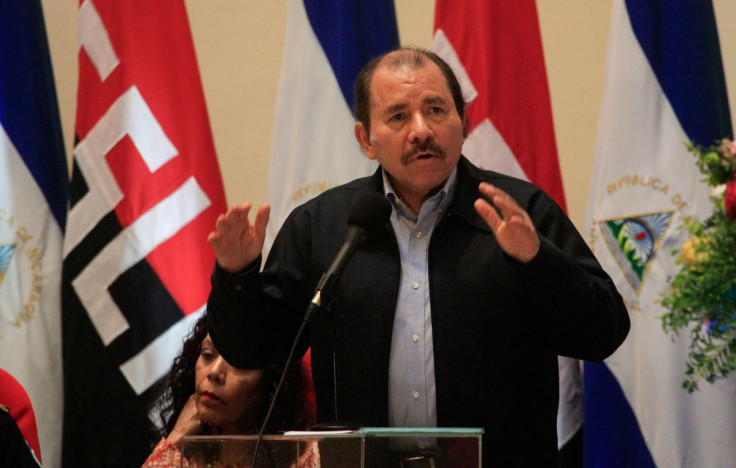
Nicaragua's government withdrew its ambassador from Argentina on Monday after President-elect Javier Milei criticized the former, by saying Buenos Aires would not do trade with "dictators" or "communists," and would also recall its envoy.
"Given the installation and inauguration of a new Government in the Argentine Republic, an inauguration that will take place on December 10, and in the face of repeated declarations and expressions of the new leaders, the Government of Reconciliation and National Unity of Nicaragua has proceeded to withdraw his ambassador, fellow writer and communicator, Carlos Midence," Nicaraguan Foreign Minister Denis Moncada said, AA reported. "The withdrawal is effective immediately."
Milei's comments came a few days before taking over the office on Dec. 10.
The president-elect has not invited Nicaraguan President Daniel Ortega for the inauguration ceremony alongside the president of Cuba, Miguel Díaz-Canel; the president of Venezuela, Nicolás Maduro and the president of Iran, Ebrahim Raisi.
It is worth noting that initially Ortega and Vice President Rosario Murillo congratulated Milei for winning the elections last month. However, it seems that Milei's comments didn't go well with the Nicaraguan leader.
Last month, the United States slammed Nicaragua for leaving the Organization of American States (OAS), adding this took the Central American country another step away from democracy.
The process to leave OAS began in November 2021 by Ortega and his wife Murillo, as the international organization -- headquartered in Washington -- had been criticizing Nicaragua leaders over human rights violations.
A spokesperson for the U.S. Department of State, Matthew Miller, slammed the Nicaragua leaders for unjustly detaining, convicting, mistreating political prisoners, attacking independent journalists, and forcing hundreds of civil society organizations and educational institutions to shut down.
A recent study, titled "The Pulse of Democracy in the Americas" by AmericasBarometer, has revealed that 50% of Nicaragua's population is willing to leave the country due to a repressive government and economic decline.
In the last five years, the percentage of Nicaraguans willing to move out of the country has increased from 35% to almost 50%. So far, the Ortega-led administration has closed at least 26 universities by accusing them of revolting against the government, among other reasons.
© 2025 Latin Times. All rights reserved. Do not reproduce without permission.







